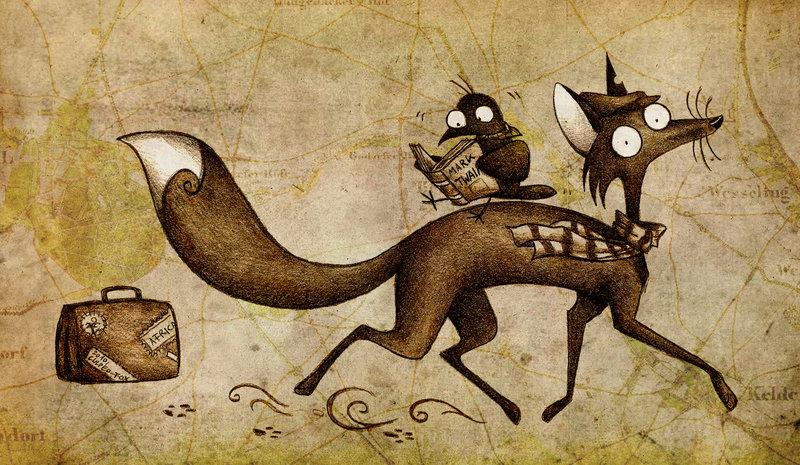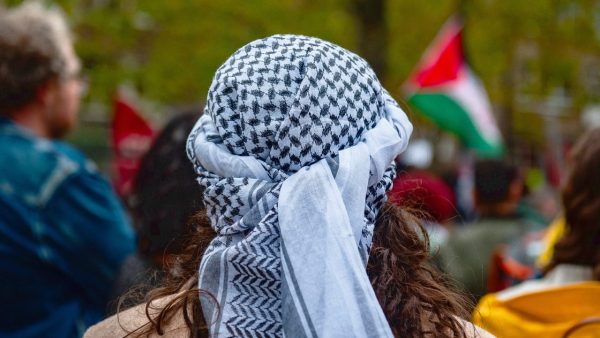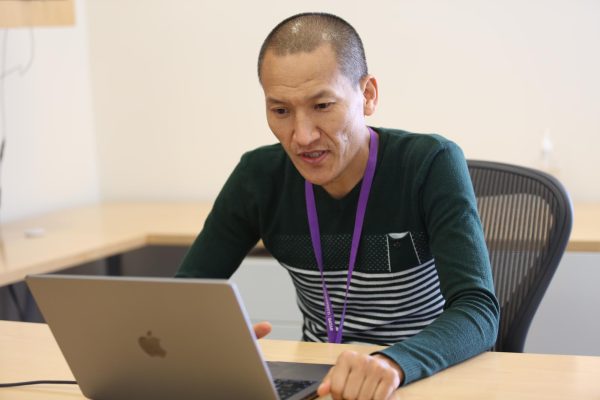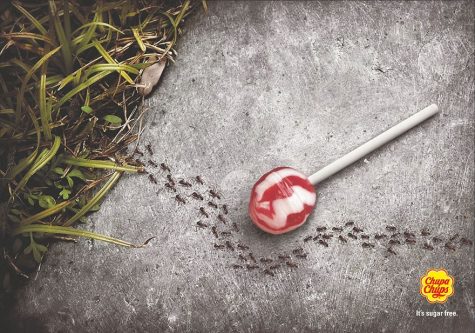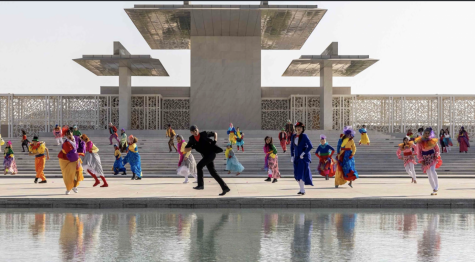Too foreign for home
“So, here you are
too foreign for home
too foreign for here.
Never enough for both.”
– Ijeoma Umebinyuo
I am a third-culture kid.
My two green passports say “Republic of Korea” in gold, as simple as that. My first passport ran out of space at the end of elementary school, so I have been using my second passport ever since. My father told me that I should feel proud of this, because not many people have more than one passport.
When people ask me where I am from, I wonder if they’re asking about my ethnicity, or where I grew up, or where I live now. I usually say, “I am South Korean, but grew up in Oman, and study in Qatar.” But is that too much? Many people stare at me for a few seconds and look impressed, surprised, or harmlessly envious. When this conversation takes place in Korean, they say “your Korean is really good for someone who lived in Korea for only three years,” and I’m not sure if I should be flattered or embarrassed.
I am a foreigner in my own country. When I travelled to Seoul in the summer after finishing high school, it had been six years since I had visited my country. I got lost on the complex subway that most Koreans rely on every day. Inside the subway, almost everyone had his or her eyes fixed on their phones and their ears were plugged with earphones. Silence filled this crowded public space except for the robotic female voice of an announcement telling us about the next station. It rained so much for so many days, unlike in Oman. Vendors sold alcohol at convenience stores – how odd! And everyone looked so similar to each other. Interesting. Food and makeup were amazing and everyone spoke Korean. I was a tourist looking around conducting ethnography in my head. I didn’t take photos, because that will make me a real tourist. In two weeks, I was missing Muscat. I couldn’t wait to go back home.
I was born in Seoul, Korea, but moved to Sydney, Australia immediately after and lived there till I was four years old. Memories of my earliest years in Australia have long been blurred in my head, but I remember the green grass outside the house and crying and clinging on to my parents’ legs every night when they were leaving home to head to work. My older cousin would gently grab me away so I could let them leave. Even though he was handsome and sweet, I liked my parents more. “Cousin” is an unusual vocabulary word for me, unlike for my South Asian and Arab friends. Living abroad for most of my life means that I missed out on spending time with extended family.
In the span of two years, I went to kindergartens in Korea, China, and Australia, but my favorite was in Australia. Making pancakes in a tiny pan and dancing in brown, uncomfortable ostrich costumes along with other kids in front of our moms and dads for a play was a lot fun. Dancing and making my mom and dad smile was much more fun than solving math problems at the kindergarten in Korea or being forced to take two-hour naps every day at the Chinese one. Once I was so bored that I kept rotating my body around on the bed. When my teacher flipped my blanket to check on me she found my feet near the pillow.
My first day of elementary school was in Seoul, Korea. I was one of the shortest kids, so I was assigned a seat in the front row. I could see my dad grinning behind the window of the front door. His smile told me he could bite off my cheek like I was too cute to handle. He always says that the secret behind my smooth skin is his saliva kisses on my face as a baby. “Eww, that’s gross,” I tell him, but he insists it’s true. Within a week, my family and I moved to China.
“An jing (安静)!” I yelled to a small class of 50 Chinese students. That means “be quiet.” I was in the second grade in a local Chinese elementary school. I was scolding one of the naughty boys who wouldn’t shut up. I held our teacher’s stick behind my back and walked around the classroom, my chin high. My job was to keep the class silent while our teacher was away. I was the “discipline president” of the class and everyone listened to me. I recited many Confucius poems in fluent Chinese in school competitions. My family’s house was located in an aloe vera farm in rural Beijing, China. I went through several glorious nosebleeds induced by fatigue that the Spartan Chinese education system causes. I was the cool kid because I was the only Korean and was more competent than many of my Chinese friends. I knew my Chinese best friend was secretly happy when I was moving back to Korea because she’d get to become the president once I left. I hated to leave, and my dad and I sobbed together in my room while I was packing on our last day in the tiny town called Chingwintien. I don’t know why he was crying but I did because my Chinese school was my kingdom. I never questioned why we were moving because I knew my parents had their reasons. This was the norm. I was just sad. When I returned to Seoul after four years, my nickname was “made in China.”
Moving around and re-adjusting was my routine, and this one was supposed to be easy.
Muscat was the first city that made me hate myself and my life as a 13-year-old teenager. Moving around and re-adjusting was my routine, and this one was supposed to be easy. I studied at the Philippines School to learn English, a little bit of Arabic, and a little bit of Tagalog. My self-esteem was torn to shreds because of my complete inability to have a conversation in English for more than three minutes. I had no friends for six months. I felt like I was dying. Since Filipinos love Korean pop music, also known as K-Pop, they gave me attention, but that too, expired within a week.
This was the darkest time of my childhood, but also the best, because when I felt like vomiting every morning before I enter my classroom and crying alone in my room for several months, that’s when God picked me up and told me it was okay, and that He loved me. For the first time in my life, I learned that God was much better than people. He taught me that I didn’t need people to love me because He already loved me, and I had to love others. Switching from the mentality of begging for love from strangers to pouring love out to them felt liberating, and this changed the way I make new friends.
A year passed by and my English improved drastically. I became friends with kids in my Arabic class who were called “non-Filipinos,” including me. I didn’t like most of the Filipino kids at my school because they made fun of Indian and African kids. I thought they were stupid to do this; I knew if they ever came to Korea, they would be the ones to be made fun of. Yet they thought they were better than some of the other groups of kids. Then I met a Filipino boy who became my first boyfriend. For 22 days. Before he turned out to be a jerk, he was a really cool boy who rode a skateboard and wrote poems while wearing his huge headphones. As always, by the time I built friendships and a romantic connection, my parents took me somewhere else. This time, I moved to another school for the sixth time. At least was in the same country. I was grateful I didn’t have to learn a new language.
Making friends got only harder as I got older. I was 16 years old, entering grade 10 in Muscat International School. Another period of social struggle awaited me at the new school. But I endured, holding tightly onto God’s love. I finally made friends. One of them, an Indian boy who was a third-culture-kid just like me, turned from being a best friend to boyfriend. I never told my father about him because I knew he wanted me to marry a Korean Christian man in the future. He had known about my Filipino boyfriend but pretended like he didn’t. A year ago, he got really angry when I liked a Muslim boy. Boys have become a taboo topic between us, especially non-Korean boys. But there has never been a Korean boy my age that I liked, not even as a friend. So what can I do?

Graduating high school in Oman and going to college in Qatar was a smooth transition. My university has taught me to master the science and art of the English language. I am surrounded by English speakers. The only time I speak Korean in Doha is when I meet my Korean Christian friends when we go to church every Friday, and when I talk to my family on the phone.
The start of Eid break in October last year, as a junior in college, was when I realized that my Korean was not as good as I thought it was. I was sitting in the passenger seat of a big bus with 25 Korean tourists behind me. They were so eager to explore this city familiar to my heart, while I was sweating and sipping water every 10 minutes to stay calm. My inconsiderate father gave me the mission of taking them from Dubai to Muscat and showing them around various tourist destinations in Muscat like a professional tour guide. I thought I was doing my dad a simple favor. But this turned out to be probably one of the worst decisions in my life.
The bus had crossed the UAE border and the Omani driver – my one and only friend in this scary bus – turned on a side road. A curious man in the bus asked me in Korean, “Excuse me! Where is the bus going?” I opened my mouth, but no words came out. A few seconds passed, which felt like a few minutes. I was glad he couldn’t see my anxious face. In English I would say, “We are going to get petrol.” Hmm. What is “petrol” in Korean? I stumbled. I could not say “petrol.” Instead I said that we were going to “charge oil” in the bus. The man seemed to understand what was happening because the bus soon reached the petrol station. I realized that I could not articulate the simplest sentence. For the rest of the day, trying to explain the history of Oman’s Grand Mosque and the Wadi (valley in Arabic) using my own mother tongue was a struggle. Fake it till you make it, they say. So that’s what I did. I tried to say “sorry, my Korean isn’t very strong” with confidence, but deep inside I felt humiliated. People didn’t judge me for growing up abroad. They admired that. But when I asked them how to say certain phrases in Korean, they responded coldly: “You can just say that in English.” They must have thought I was looking down on them for their poor English. That night, I finally reached home and saw my family. They had a good laugh with all the hilarious anecdotes that this ridiculous day produced. I laughed with them and shed tears of stress and relief.
Sometimes I feel like I don’t belong anywhere because I’m a mixture of every culture I was exposed to. I’m a little bit of everything and, therefore, nothing at the same time.
As a Korean girl who has lived in the Gulf for nearly a decade, I always ask myself these questions: how should an Asian girl in the Middle East dress up? Are my clothes too tight and revealing, or do they cover too much skin? Wearing leggings under my knee-length skirt in Chicago made me feel like I was wearing abaya. Meanwhile, wearing a t-shirt and a pair of jeans in Qatar and Oman sometimes makes me feel like I’m wearing a bikini. I try to make sure my butt is covered with a jacket or a long shirt when I go to the university, because I’m afraid people will think I’m an overly liberal girl who dresses up too freely. In high school, a Scottish boy in my computer class offered to help me for an in-class assignment even though I was okay on my own. I was sitting in front of the computer and he leaned down to see my screen. He asked me if I felt cold and placed his hand on my hand on the mouse. And he unnecessarily tapped my shoulder as he left and said “good luck.” After class, I told my close friend, a Pakistani hijabi girl well-known for her religiosity, about how annoyed I was at his excessive touching. She said he barely even makes eye contact with her. After talking to several other girls in class, I learned that his treatment of girls was dependent on whether they wear hijab or not. I was offended.
There are several things I missed out on as a third-culture kid. One of them is that I don’t have cute, heartwarming stories of how my grandparents took care of me as a child or spoiled my siblings and me with love. This is because my family and I have always been outside of my native country. Phone call conversations with my grandmother are 80 percent of me updating her on my life for the past year and 20 percent of her shy, curt responses, because she is a loving yet unexpressive person. I would ask about her health and give her the half-truth that I miss her. She would say she misses me too. I don’t know how to speak to my grandfather at all; a part of me breaks a little whenever I think about it.
Sometimes I feel like I don’t belong anywhere because I’m a mixture of every culture I was exposed to. I’m a little bit of everything and, therefore, nothing at the same time. When I say “in my culture,” what do I even mean by my culture?
But.
If God clicks a rewind button of my life and gives me a choice between a chaotic life of constant movement or something more stable and permanent, I would stick to the former. If I climb up a really tall building on a moon and look down on all of humankind, we are like tiny ants that think we are so different from each other. But I know we are more similar to each other than we think. We cry when we’re sad and we laugh when we see something funny. We all want other people to love us. I am too foreign for ‘home’ and too foreign for here; this feeling of inadequacy probably won’t go away ever. But it doesn’t matter because it’s okay not to belong anywhere. I like God more than people and I belong to Him.



